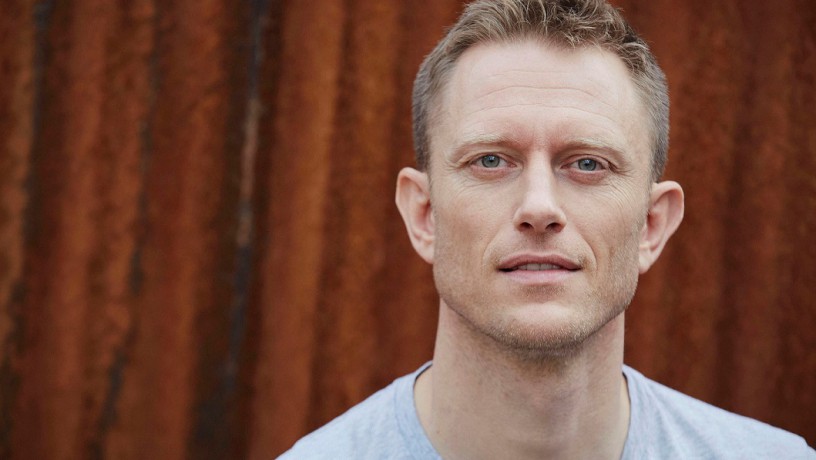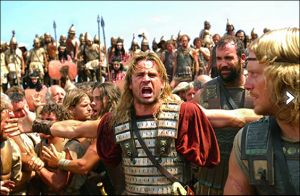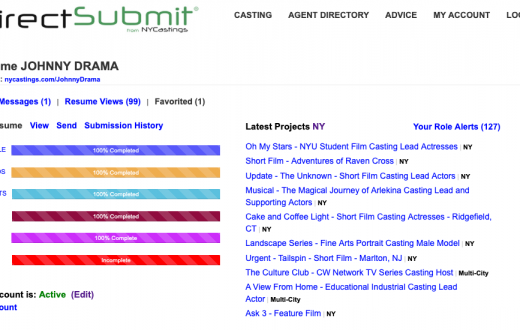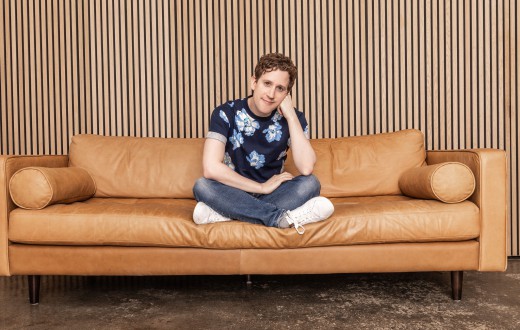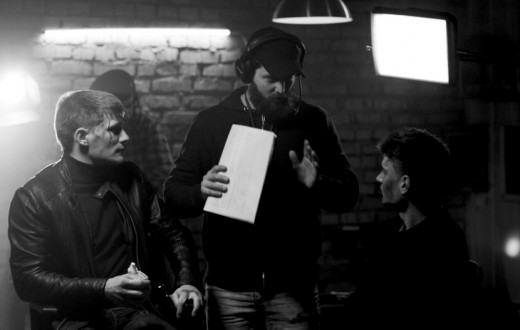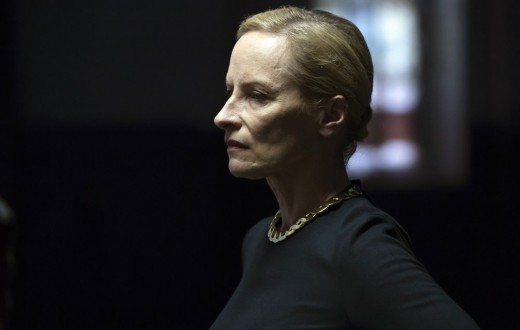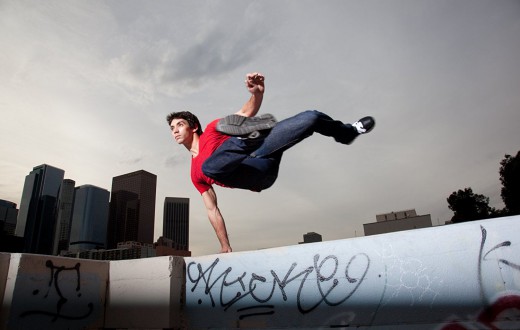DC Universe Stargirl actor Neil Jackson didn’t realize something was missing in his early acting years – the ability to let loose and explore his characters.
By taking the script and his characters so literally, it created a strict effect which didn’t allow Neil to play off the other actors; he wasn’t able to flesh out the scene multiple ways to obtain the best result.
Neil Jackson discusses how he overcame the obstacle and gives us insight as to what experiences carried over into adulthood that helped further his acting career.
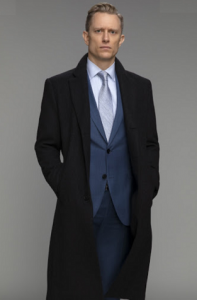
You have multiple shows coming out this year, such as The King’s Man prequel (Sept. 18th, 2020), Amazon’s Absentia (mid-July Season 3 Premiere) and DC Universe’s upcoming Stargirl (2020 Series Premiere). Is it hard to maintain a strict work ethic for different characters when working on back to back productions?
I actually found it wildly exciting. I’m now in my 20th year as a professional actor. Like all of us, I have had numerous ups and downs. Just three years ago I was in the worst slump of my career. I had barely worked for two years, and the jobs I did work on paid a scale day-rate, so my savings were gone and I was living off of credit cards. I started driving Uber to make ends meet and was seriously contemplating my place within the industry. Then “Absentia” came along. That show dug me out of the financial hole I was in, but it also pulled me out of the creative slump I was experiencing. It made me fall back in love with the work, but from a deeper level of appreciation that could only come from being in the trenches. So last year when I found myself juggling four back-to-back projects, it was a dream come true. I was in Bulgaria shooting the second season of “Absentia,” while flying back to London to audition and meet the director for “The King’s Man.” I then had three weeks off for Christmas, before I was back in London shooting “The King’s Man.” At the same time, I was offered “Stargirl” and so flew from London to Atlanta for HMU and costume tests, then back to London to continue filming, before finally decamping to Atlanta for six months to film “Stargirl.” During which time it was announced that we would have a third season of “Absentia” and so I had only 10-days between finishing “Stargirl” and then flying out to Bulgaria to shoot that. It was a crazy whirlwind and the like I had never before experienced in my career, but I also found that it gave me this insane amount of energy. I was working on multiple sets, playing very different and complex characters in three different countries. Any exhaustion I felt was very quickly replaced by excitement and gratitude. I have absolutely no expectation that this incredible slew of work will go on indefinitely. I have had busy and slow periods and that, I understand, is part of the job, the difference though is that I accept it now and am incredibly grateful for the busy moments and, when the slump comes, which it will, I don’t allow that panic to rise and start to chase and chase the work.
You’re best known for your roles as Marcus on Blade: The Series and Sasha on Make It or Break It. Did you audition for these roles?
I had been in LA for about 11 months when the audition for “Blade” came in. I moved to LA from London after I came over for the premiere of Oliver Stone’s “Alexander” and secured representation. It was a slow 11 months. I had lots of meetings, but only booked one guest star role during that time and my money had run out. I had called my mum in the UK and said that I wouldn’t be home for Christmas… then “Blade” came along. I auditioned for the role as American, but, on a recall, was asked to try him in my natural accent. It worked and I booked my first ever screen test. I had no idea what to expect when I arrived at the studio that morning for the test. It seemed so gladiatorial. There were about 15 actors all pacing and working on the scenes and the tension was palpable. I was called into the room and was surprised to see maybe 20 people sitting around a table. They all introduced themselves and I made a joke about being tested on their names afterwards. It got a polite chuckle. I then did the read and left. I had no feeling either way about how it went, but I got the call that afternoon that I’d booked it and we would shoot in one week. I then called my mum and said I would be home for Christmas after all.
“Make It Or Break It” was a different story. I was really struggling in LA at that time. I had been there for maybe four years at that point and, following the cancellation of “Blade” after only one season, I was struggling to find my footing. It was causing me a lot of stress as I felt like I was failing and my career was slipping through my fingers. I decided to go back to the UK for a break and rethink. My brother was going on holiday and so I stayed in his flat. My sole purpose was to relax, read, and not audition or think about the industry at all. Then I got a call. The creator of MIOBI wanted me to audition for a new role that would feature for three episodes. I turned the audition down. Two days later my agent called again and said that they really wanted me to audition for the role. I told them that I was in the middle of nowhere, with no means to self-tape or getting to London. Thinking that was that, I went back to my self-reflection. Then, the next day I got another call. The creator of the show had arranged for me to tape with a casting director in London and said that they would even reimburse me for my travel. I was gobsmacked. And so I took the train the next day into London and read for the role of ‘Sasha.’ The following day I was told that I had the part and needed to be back to start filming next week. That three episode arc became a recurring guest star role that spanned three full seasons. I never actually asked Holly Sorrensen (the show creator) why she fought so hard for me, but I did tell her how grateful I was that she did. Booking that show was a significant moment for me as an actor. It was the affirmation I needed to keep going.
How did you build your confidence up to work in the grueling industry of show biz?
That’s not something I was every really conscious of. I think that I started in the industry with something of an over-inflated sense of confidence. My hardest struggles have been when the industry hasn’t matched my own expectations for my career. It has been so necessary for me to have those lessons and to shatter that sense of ego I started with so that I could become the artists I actually wanted to be.
Neil Jackson, Jared Leto, Colin Farrell and Rory McCann in Alexander. Photo Credit IMF Internationale Medien und Film GmbH and Co. 3 Produktions KG
In 2004, Oliver Stone cast you as Perdiccas in the Hollywood blockbuster film Alexander alongside Colin Farrell and Angelina Jolie. At the audition, you had a black eye and stitches. Why did you have a black eye? Did your agent know you had a black eye at the time you were sent on the audition or did you “forget” to tell your agent this important fact? Were you self conscience about your eye and stitches when you walked into the audition room?
I had been drinking in a bar in London when an altercation happened. I stepped in and a fight broke out. I ended up getting a black eye and three stitches. The next day my UK agent, Shane Collins, told me that Oliver Stone was in town and wanted to meet me for a role tomorrow. I had auditioned with the casting director weeks and weeks before, and then completely forgotten about the project. I told my agent about my eye and he said that I would only get one shot at this, so to go in regardless. I met with Oliver and never once mentioned the black eye, or the stitches. I simply did the audition in front of him with the reader and, when it was over, he offered me the part. ‘Perdiccas’ was the general of Alexander’s infantry, a fighting man, and I’m sure the black eye went a long way towards convincing him I could play that part!
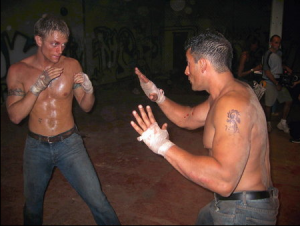 You were a competitive amateur boxer for five years, boxing out of Cardiff, where you went to University to study sports. How has boxing helped you keep fit, even now?
You were a competitive amateur boxer for five years, boxing out of Cardiff, where you went to University to study sports. How has boxing helped you keep fit, even now?
Boxing is something that I credit a lot to in my life. It not only gave me a sport and a skill, but it taught me so many invaluable life lessons. I view my career as an actor in very much the same way as boxing. It is, ultimately, a solo endeavor. It is up to me to do all the preparation that I need in order to succeed — the bag work or road work, the research and character work. Then, when I step into the ring, or the audition space, or the set, I only have myself to blame if my preparation isn’t sufficient. But within there, it’s important to trust my prep so that I can dance and play and (literally and figuratively) roll with the punches. Boxing taught me this incredible work ethic, that if I want something it is up to me to put the work in to achieve it, and that I cannot blame anyone else if I do not work hard enough.
What boyhood experiences did you have that carried over into your adult career?
I felt very much alone when I was a child. I am one of four boys, so there were always a lot of people around, but I realize now that my loneliness came from my own insecurity. I didn’t feel worthy of love or attention and so I acted out to become that thing I believed would make me lovable. I have done a lot of work on myself since then and no longer feel that way, but I have always said that my super power is the ability to see loneliness in anyone. This is something that gives me a lot of empathy for people, something I think is essentially not just for storytelling, but for life.
You’re also a writer and producer. What upcoming gigs are you working on that do not involve you as an actor? What does a producer do, anyway? What software do you use for writing?
I have always written stories. Long before I became an actor. I love the discipline of writing and I love, love, love the creative challenge of building a world. I recently directed two short films from scripts that I have written, and the creative fulfillment I felt standing on those sets and calling action, getting to mold the story in its totality from inception to completion, was thrilling. Before Covid hit, I was in development to direct my first feature film from one of my scripts. That will no-doubt be pushed until next year, but I cannot wait to call action that first day on that set.
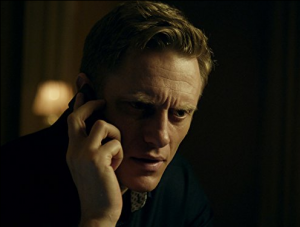
What was it like working on the Woody Allen film You Will Meet a Tall Dark Stranger?
Woody Allen is the most efficient and economic director I have ever worked for. He would shoot four-day weeks (because he liked to travel to jazz festivals over the weekend), and he would only shoot for eight or nine hours each day. He’s a quiet and reserved man, at least that was my experience of him. But one of my fondest memories from that set was sitting in a the green room one afternoon. The crew were all on break while Woody was getting his hair cut. I was in there with Frieda Pinto and Josh Brolin. Josh was explaining that, next, he would be shooting “Money Never Sleeps,” the Wall Street spin off with Shia LeBeouf. Woody hadn’t heard of Shia, so Josh explained that he was the kid from “Transformers.” Woody hadn’t heard of “Transformers.” What happened next was such a hilarious exchange. I wish I’d filmed it. Josh went on to explain the plot of “Transformers” to Woody Allen, who was having his hair cut without his glasses on. Josh would explain about these robot cars from Mars and Woody would squint over with all these logical, but hilarious questions about “Why were they cars from Mars?” “Are there roads on Mars?” “Why do they need to Transform?” It was, for that moment, like living inside a scene from “Annie Hall.”
Does England have actor unions comparable to America’s SAG-AFTRA?
Equity is our union in the UK. It’s great, but it doesn’t have the strength or power of SAG-AFTRA. It was originally created by theatre actors for theatre actors.
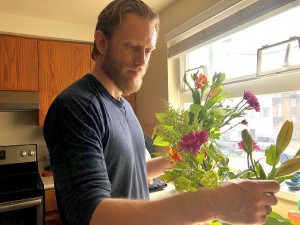
Anything else you’d like to say?
The best lesson I have learned over my years of doing this is to allow myself to play. I came to this industry from a sporting background and that gave me a wonderful work ethic, but it also gave me a false sense of rigidity. I studied theatre, which enhanced this sense of rigidity. I would work on a project, a character, a scene, and then bring all of that work to set and expect things to play out in exactly the way I had prepared. I would then get frustrated if things didn’t happen the way I planned. I gradually realized that I was restricting my performance immensely by this fixed approach. It was a means of me controlling the uncontrollable and it made me more rigid as a performer. Gradually, I learned to loosen that grip. I would do all of the work, but then come to set with the express intention to play. I wanted to be free to experience the scene fresh each time (with all the technical aspects still in place), and allow myself to explore whilst I am working. When I started to do this I noticed that an emotional honesty gradually crept into my work that made each moment far more authentic both for me as a performer, but also, hopefully, for audiences. But it also meant that I was no longer attached to a predetermined outcome, and I would therefore not get frustrated if I didn’t achieve “what I set out to do.” Rather I would dance within the scene and let it be this free and living thing.
You can follow Neil Jackson at:
Twitter
Instagram
Facebook
Website

